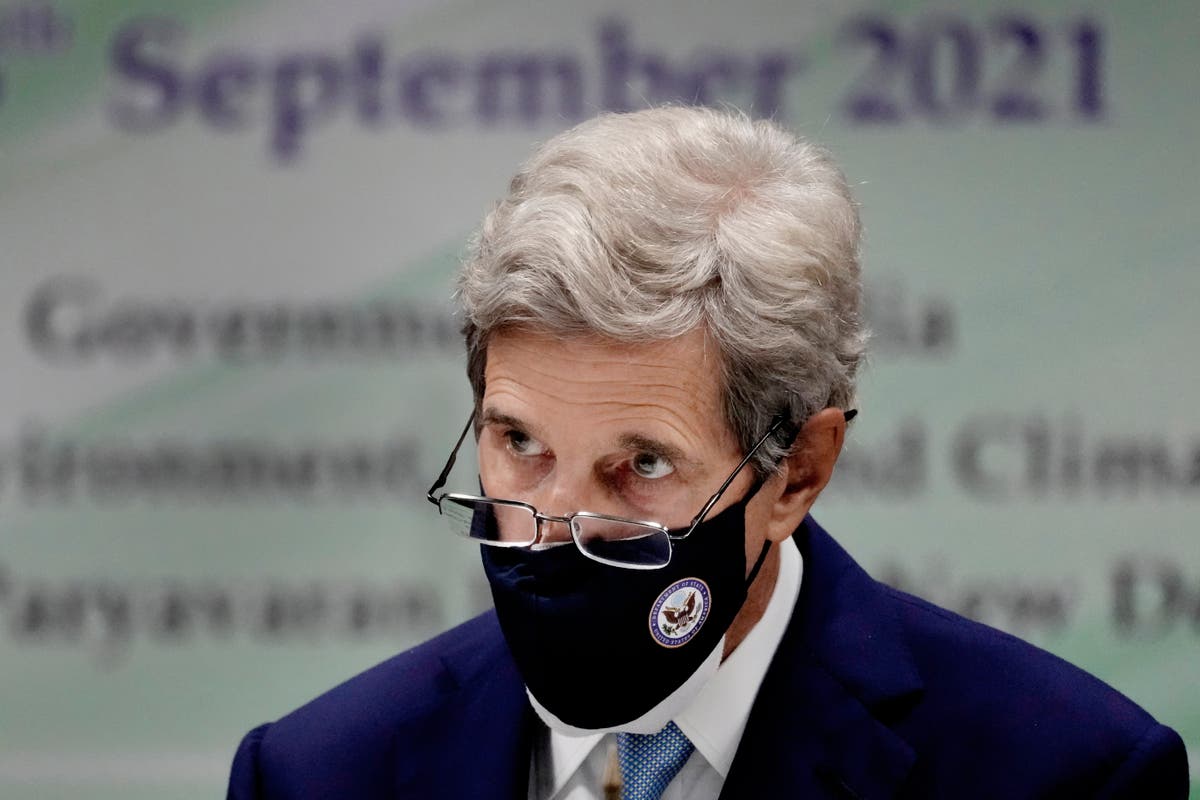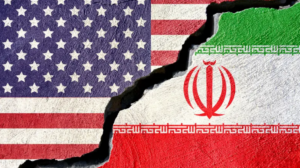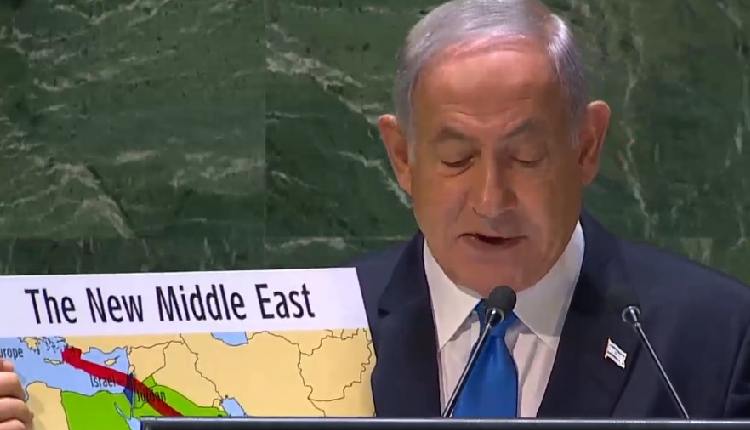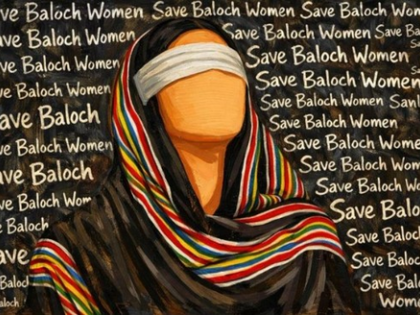
U.S. envoy John Kerry’s diplomatic quest to stave off the worst scenarios of global warming is meeting resistance from China the world’s biggest climate polluter, which is adamant that the United States ease confrontation over other matters if it wants Beijing to speed up its climate efforts.
Rights advocates and Republican lawmakers say they see signs, including softer language and talk of heated internal debate among Biden administration officials, that China’s pressure is leading the United States to back off on criticism of China’s mass detentions, forced sterilization and other abuses of its predominantly Muslim Uyghur minority in the Xinjiang region.
But the White House took a step this past week that could further deepen the U.S.-China divide, forming a security alliance with Britain and Australia that will mean a greater sharing of defense capabilities, including helping equip Australia with nuclear-powered submarines.
President Joe Biden came out strong from the start of his presidency with sanctions over China’s abuse of the Uyghurs, and his administration this spring called it genocide. But the U.S. desire for fast climate progress versus China’s desire that the U.S. back off on issues such as human rights and religious freedom is creating conflict between two top Biden goals: steering the world away from the climate abyss and tempering China’s rising influence.
It would be “disastrous in the long term for the United States government to backtrack, tone down, let the Chinese manipulate the issue,” said Nury Turkel, a Uyghur advocate and the vice chairman of the U.S. Commission on International Religious Freedom, an advisory panel that makes policy recommendations to the White House and Congress.
Chinese leaders repeatedly linked the issue of climate change and their complaints over perceived U.S. confrontation on human rights and other issues during Kerry’s most recent China trip this month, Kerry told reporters in a call.
The Chinese complained specifically about sanctions the administration has put on China’s globally dominant solar panel industry, which the U.S. and rights groups say runs partly on the forced labor of imprisoned Uyghurs.
“My response to them was, ‘Hey, look, climate is not ideological, it’s not partisan, it’s not a geostrategic weapon or tool, and it’s certainly not, you know, day-to-day politics,’” said Kerry. He told reporters in a call after the talks that he could only relay China’s complaints about the sanctions to Biden and Secretary of State Antony Blinken.
China in 2019 pumped out 27% of climate-eroding fossil fuel fumes, more than the rest of the developed world combined. T he United States is the second-worst offender, at 11%.
That makes China central to the world’s fast-evaporating hopes of cutting fumes from use of petroleum and coal before catastrophic climate change becomes inevitable and irreversible.
Kerry, the former secretary of state and Biden’s global climate envoy, has led repeated calls, online meetings and visits to Chinese officials before November’s U.N. climate summit in Scotland. He has urged the Chinese to move faster on steps such as cutting their building, financing and use of dirty-burning coal-fired power plants.
He and others see that summit as a last chance to make significant emissions cuts in time. Climate efforts will also be a theme of leaders at the U.N. General Assembly this coming week.
China under President Xi Jinping has said it will hit peak climate pollution by the end of this decade and then make China climate pollution neutral by 2060, a decade later than the U.S. and other countries have pledged.
As China asserts its economic influence and territorial claims, and tension and competition rise with the United States, Xi and his officials have shown no desire to be seen as following the U.S. line on climate or anything else.
Chinese Foreign Minister Wang Yi told the U.S. diplomat in a video meeting on Kerry’s latest China trip that “China-U.S. cooperation on climate change cannot be divorced from the overall situation of China-U.S. relations.”
The U.S. should “take positive actions to bring China-U.S. relations back on track,” Wang added, according to a Foreign Ministry statement.
“The Chinese believe that the U.S. needs cooperation from China more than China needs the United States,” and like others see the United States as weaker now than in the past, said Bonnie Glaser, an expert on Asia and Asia security matters at the German Marshall Fund of the United States.
U.S. global climate objectives in that context are another “point of leverage, and they are trying to use that to get the United States to back off some policies they find particularly objectionable,” including U.S. pressure on human rights, Glaser said.
Kerry has said no country is as committed to human rights as the United States and that his climate discussions with China’s leaders have been constructive.
But there’s talk China’s pressure on the human rights-climate front is having effect.
An account circulating in China policy and human rights circles in Washington claimed Kerry had a forceful debate with other administration officials on the matter before his most recent China trip. Some claim administration influence in a bipartisan bill on Uyghur forced labor that stalled in the House after easily passing the Senate.
The State Department declined comment on the two matters.
Uyghur and human rights advocates say they believe administration officials are softening their tone on social media and in other public comments on China and human rights.
They point to a White House statement on a call between Xi and Biden on Sept. 9 that made no mention of human rights.
White House press secretary Jen Psaki said the United States continues trying to make progress on areas of both shared interest and mutual disputes with China.
Republican Sen. Marco Rubio of Florida, who with Sen. Jeff Merkley, D-Ore., is the main author of the Uyghur forced labor bill, said in a statement that administration officials’ “single-minded focus on climate led them to downplay the genocide in Xinjiang.”
People “working to end the genocide are horrified at what we observe” in the administration, said Julie Millsap of the Campaign for Uyghurs advocacy group. No one with knowledge of China would expect a one-off “dialogue using human rights issues as leverage for climate change is going to work,” she said.
The standoff is an agonizing one for climate advocates.
Helen Clarkson, CEO of The Climate Group, hesitated when asked about the matter. She wouldn’t trade human rights for emission cuts, she said, but “there is a way to do both.”
Asked how, Clarkson said, “I don’t tell John Kerry how to do his job. But of course, it’s important we hang on to the fundamental principles.”
___
Associated Press writers Seth Borenstein and Matthew Lee in Washington contributed to this report.






